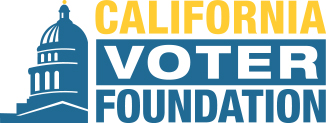Excerpt:
It’s no surprise that legislators on both sides of the aisle receive hate mail, social media harassment and threats. All elected officials are targets from time to time. It’s not ok, yet it’s hard to stop.
Now, local election officials—the people who administer elections—are targets, too. First, who are these people? Then, what’s up with harassment?
Election officials are the more than 8,000 government employees who run elections (along with more than 100,000 poll workers). Metaphorically, they’re the face of democracy. Practically, they’re responsible for answering voter questions; testing, deploying and storing election equipment; recruiting and training poll workers; finding polling locations; providing accurate public information; protecting against cybersecurity threats; and more.
Exactly what each local election official does varies state by state, and some may have other duties as well, such as maintaining land records or running the county motor vehicle departments. The common mission, though, is to run elections fairly and count votes accurately. For more on the role of local election officials, especially during the 2020 election, check out the resources at the bottom.
- - - - - - -
As for threats, harassment and intimidation, those unfortunately have become less rare. In June 2021, the California Voter Foundation (CVF) released a report, Documenting and Addressing Harassment of Election Officials. “While many have put the last election in the rearview mirror, election officials are still being attacked,” said Kim Alexander, CVF’s president and founder. In fact, a report from the Bipartisan Policy Center and the Brennan Center for Justice found that one in three election officials reported feeling unsafe and one in six reported being threatened due to their job during the 2020 election. The Stanford Internet Observatory’s 2020 Elections Oral History Project shows how “narrative after bad-faith narrative took aim at election officials, often culminating in months of personal threats against their lives and the lives of their family members,” and presents a few frontline workers’ stories.
Experts across the political spectrum have addressed this issue, including Bob Bauer and Ben Ginsberg, headliners in the election law world and former co-chairs of the Presidential Commission on Election Administration, with Bauer on the left and Ginsberg on the right. Along with veteran election attorney David Becker, they launchedthe Election Official Legal Defense Network as part of the nonpartisan, nonprofit Center for Election Innovation and Research. The network will connect pro bono attorneys to election officials who request assistance, regardless of political affiliation, state or county location. The Department of Justice, too, has addressed the issue, highlighting the problem in a memo to federal prosecutors and the FBI, Guidance Regarding Threats Against Election Workers.
And harassment isn’t the end of the story. “These attacks are driving a disturbingly high number of our democracy’s frontline workers to leave their positions,” said Alexander. “In California, 15% of election officials have already resigned and more may follow.” According to a Reed College survey of 850 election officials, 35% are eligible to retire before 2024, and of those 45% indicated they plan to do so—reducing today’s experienced local election officials by 16%. (Full Story)

